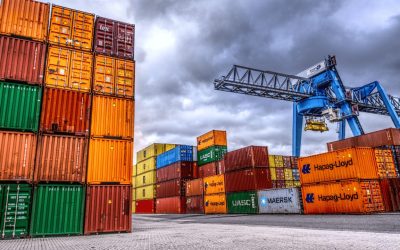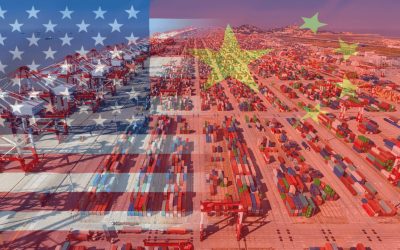Recent Houthi attacks have prompted major shipping companies to reassess their routes. Discover how staying informed, assessing alternative routes, and proactive communication with your logistic partner can help your business adapt to disruptions.
The Red Sea has become a focal point of concern due to escalating attacks on ships, particularly those passing through the strategic waterway between Africa and the Arabian Peninsula. The conflict, stemming from the Israel-Hamas war, has raised questions about the safety of one of the world’s busiest trade routes and the potential implications for global logistics.
The threat: the Houthi rebels, backed by Iran, have intensified their attacks on ships in the Red Sea, targeting vessels flagged to various countries, not just those linked to Israel. This has led to disruptions in the flow of crucial commodities, including oil, grain, and consumer goods. According to Reuters, the European Union, the US, and several countries have denounced these attacks, stating that they threaten international navigation and maritime security.
The Red Sea serves as a vital trade artery, connecting Asia and Europe through the Suez Canal. Approximately 10% of the world’s trade passes through this route, making it indispensable for the global supply chain. Energy supplies, food products, and manufactured goods traverse the Red Sea, and any disruptions can have widespread consequences.
Impact on Trade and Shipping
As a result of the attacks, some Israeli-linked vessels have opted for longer routes around Africa, significantly increasing journey times and costs. While the global oil market has not been severely affected, the shipping industry has witnessed a notable rise in insurance costs. Shippers moving through the Red Sea have seen insurance costs double, with Israeli ship owners facing a staggering 250% increase, According to information published by Associated Press.
In response to the escalating situation, major shipping companies, including Maersk and Hapag-Lloyd, have temporarily paused their voyages through the Red Sea. A coalition led by the United States and the United Kingdom, involving several nations, has been established to safeguard commercial vessels in the region. However, Financial Times reporters explain that uncertainties remain about the details of the coalition’s operations and the effectiveness of its measures.
There are concerns within the shipping industry about the need for more clarity regarding the coalition’s plans, rules of engagement, and overall protection scheme for commercial vessels. The recent hijacking of the Galaxy Leader has added to the uncertainties, leading some shipping companies to divert their routes around Africa.
Recommendations from Aerodoc
In light of the current situation, Dan Zonnenschein, COO at Aerodoc, recommends the following for Aerodoc customers and logistics users:
- Stay Informed: Keep abreast of the latest developments in the Red Sea region and monitor advisories from relevant authorities.
- Assess Routes: Evaluate alternative routes for shipments, considering potential delays and increased costs associated with insurance premiums.
- Communicate with Partners: Maintain open communication with your Project Manager at Aerodoc or your shipping partners, ensuring transparency about potential disruptions and contingency plans.
- Insurance Coverage: Review and update insurance coverage to account for increased risks in the Red Sea region.
- Consider Diversification: Explore diversification strategies, such as utilizing multiple transportation modes or alternative trade routes, to mitigate potential disruptions.
While the situation in the Red Sea poses challenges to global trade and logistics, proactive measures can help navigate these uncertainties. As the industry adapts to the evolving geopolitical landscape, collaboration, communication, and strategic planning will be essential to ensure the continued flow of goods through this crucial maritime route.
At Aerodoc, we’re committed to keeping you informed and prepared. Please contact your Project Manager for further information.




